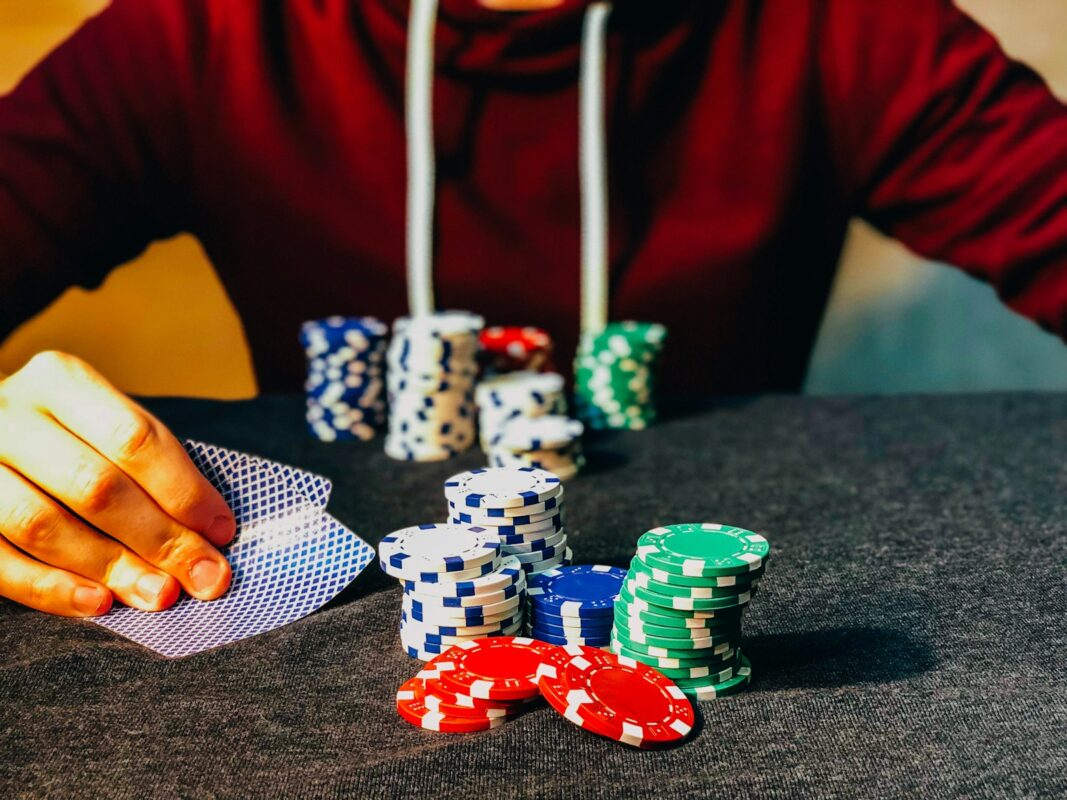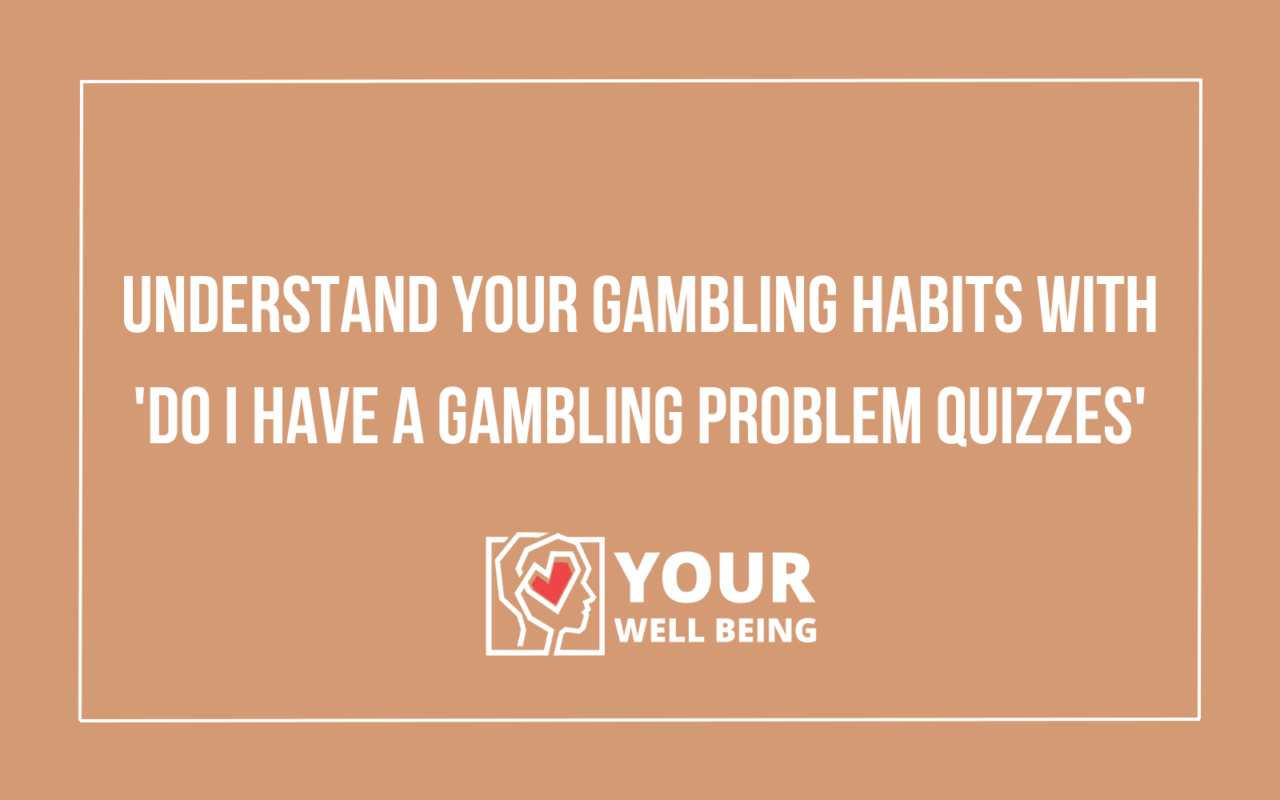Do I Have a Gambling Problem Quizzes: A Guide to Recognizing the Signs
Gambling can be a fun and exciting activity, whether it’s playing the lottery, betting on sports, or visiting a casino. But when the thrill of the game turns into an uncontrollable habit, it may be a sign of a deeper issue. For many people struggling with uncertainty about their gambling behavior, “Do I have a gambling problem quizzes” offer a valuable first step in gaining self-awareness and seeking help. In this in-depth guide, we’ll explore how these quizzes work, what they reveal, how to interpret your results, and what to do next. If you’ve found yourself wondering whether your gambling habits have crossed the line, this article is for you.
Why People Take “Do I Have a Gambling Problem Quizzes”
Millions of people around the world gamble responsibly. However, some develop problematic behaviors that lead to financial difficulties, broken relationships, and emotional distress. For those in the early stages of concern, taking “Do I have a gambling problem quizzes” can provide clarity in a confusing and emotional time. Here are a few reasons people seek out these quizzes:
- They’ve lost more money than they can afford.
- Friends or family have expressed concern.
- Gambling is interfering with work or personal life.
- They feel guilt, shame, or secrecy around gambling.
- They try to stop gambling but keep going back.
“Do I have a gambling problem quizzes” are valuable tools designed to help individuals assess their behaviors and confront potential issues with gambling. By asking targeted questions about spending habits, emotional responses, and frequency of gambling, these quizzes allow people to reflect on their patterns objectively. Often, they serve as an eye-opener, encouraging individuals to acknowledge the problem and take the first steps toward seeking professional help or support resources.
What Are “Do I Have a Gambling Problem Quizzes”?
Do I have a gambling problem quizzes are online self-assessment tools designed to evaluate your relationship with gambling. These quizzes typically include a series of questions that focus on behavior patterns, emotions, and consequences related to gambling. Most quizzes are modeled after diagnostic criteria from the DSM-5 (Diagnostic and Statistical Manual of Mental Disorders) or are inspired by research-backed screening tools.
The quizzes are not a substitute for professional diagnosis but can indicate whether further action is recommended.
Common Questions on Gambling Problem Quizzes
To better understand what these quizzes evaluate, here are common questions you might find on “Do I have a gambling problem quizzes”:
- Have you ever gambled more than you intended?
- Do you lie to friends or family about how much you gamble?
- Do you feel restless or irritable when you try to cut back?
- Have you chased losses by gambling more to win back money?
- Have you jeopardized a relationship, job, or education due to gambling?
- Do you often think about gambling even when you’re not playing?
- Have you borrowed money or sold possessions to fund gambling?
- Have you tried and failed to stop gambling on your own?
- Do you feel guilt, anxiety, or depression related to your gambling?
- Do you gamble as a way to escape from problems or relieve feelings of helplessness?
Each “yes” answer may be a red flag, especially if you identify with multiple items.
Scoring and Interpreting Results
Each “Do I have a gambling problem quiz” has its own scoring system, but here is a general guide:
- 0–2 “yes” responses: Likely not experiencing a gambling problem, but caution is still advised.
- 3–5 “yes” responses: May be showing early signs of problematic behavior; consider speaking to a counselor or support group.
- 6+ “yes” responses: Strong likelihood of a gambling disorder; professional help is recommended.
Even one “yes” response in certain areas—like lying to loved ones or betting with borrowed money—can be cause for concern.

Benefits of Taking “Do I Have a Gambling Problem Quizzes”
1. Self-Awareness
Many people who struggle with gambling often find themselves in denial about the extent of their problem, making it hard to recognize the impact it has on their lives and those around them. These quizzes are designed to offer an honest and objective reflection, helping individuals identify behaviors or patterns that can be difficult to acknowledge on their own. By taking a closer look, they can take the first step toward understanding their situation and seeking the support they need.
2. Non-Judgmental Format
The anonymity and simplicity of online quizzes provide a safe space for users to explore complex or personal topics without fear of judgment. By removing the pressure of face-to-face interactions, these quizzes allow individuals to confront difficult truths, reflect on their feelings, and gain insights about themselves in a private and non-intimidating way.
3. Accessible and Immediate
Most quizzes are available online 24/7, making them convenient to access anytime, whether you’re at home or on the go. They are often free to use, which means you can enjoy engaging with them without spending a dime. Plus, they typically take only a few minutes to complete, offering a quick and easy way to test your knowledge, pass the time, or learn something new.
4. A Starting Point for Recovery
Taking the quiz can be the first step in a long-term journey of healing and self-discovery. It offers valuable insights into your current mental and emotional state, helping you better understand what you’re going through. For many, this simple step becomes the push they need to seek professional help, opening the door to guidance, support, and effective strategies for improvement.
Finding Reliable Gambling Problem Quizzes
Not all online quizzes are created equal. For accurate self-assessment, it’s important to use quizzes that are professionally developed and based on established psychological screening tools. At Your Well Being, we’ve designed our “Do I have a gambling problem quiz” using evidence-based criteria to provide you with reliable insights into your gambling behaviors.
When searching for “Do I have a gambling problem quizzes,” avoid gimmicky or commercial sites that may exploit your vulnerability or sell gambling products. Look for quizzes provided by mental health professionals and legitimate wellness organizations.
What to Do After Taking the Quiz
1. Review Your Answers Honestly
Resist the urge to downplay responses, even if they seem minor at first. If multiple questions triggered concern, it’s not something to ignore—it’s a clear indicator that something deeper might be going on. Taking the time to explore these concerns further could uncover underlying issues that need attention, allowing for a more thoughtful and proactive approach to addressing them.
2. Talk to Someone You Trust
Discussing the results with a family member, friend, or counselor can provide emotional support and help you process your feelings more effectively. Sharing your thoughts and concerns with someone you trust can reduce feelings of isolation and offer new perspectives, making it easier to navigate the situation with confidence and clarity.
3. Seek Professional Help
If the quiz suggests that you may have a gambling problem, it’s important to take action by reaching out to a licensed mental health professional or addiction counselor. These professionals are trained to provide support and guidance tailored to your specific needs. Many therapists specialize in behavioral addictions and can work with you to develop strategies for managing gambling urges, addressing underlying issues, and improving your overall well-being. Seeking help early can make a significant difference in your recovery journey.
4. Join a Support Group
Support groups provide peer-led support and resources for individuals at all stages of recovery from gambling addiction. Through regular group meetings, these organizations offer a safe and non-judgmental space for individuals to share their experiences, learn from others, and build a supportive community. Many follow structured programs designed to help members regain control of their lives and work towards long-term recovery.
5. Set Boundaries and Take Action
Some practical steps you can take immediately:
- Self-exclude from online gambling sites or local casinos.
- Use financial tools to limit spending.
- Install apps that block access to gambling websites.
- Create a written plan to avoid gambling triggers.
Signs It’s Time to Take a Gambling Problem Quiz
Still not sure whether “Do I have a gambling problem quizzes” are relevant for you? Here are some specific signs that it’s time to take one:
- You’re spending more money or time on gambling than ever before.
- You feel compelled to gamble, even when you know it’s hurting you.
- You’re gambling with money meant for bills or essentials.
- You find yourself chasing losses after losing bets.
- You’re hiding gambling behavior from loved ones.
- You feel anxious, depressed, or restless when you’re not gambling.
- You’ve tried to stop but keep returning to it.
If any of the above sounds familiar, taking a quiz could help you get clarity on what’s going on.
The Link Between Gambling and Mental Health
One of the reasons “Do I have a gambling problem quizzes” are so impactful is because they often reveal connections to other emotional issues. People may use gambling to escape from:
- Depression
- Anxiety
- Trauma
- Financial stress
- Relationship problems
Understanding the emotional drivers behind gambling is crucial for developing an effective treatment plan that goes beyond simply addressing the behavior. Many individuals turn to gambling as a way to cope with stress, anxiety, or unfulfilled emotional needs, making it essential to identify these underlying factors. By focusing on the root causes, such as emotional struggles or environmental triggers, treatment can be more personalized and impactful, offering long-term solutions rather than temporary fixes.
What If I’m Taking the Quiz for Someone Else?
Sometimes, people take these quizzes out of concern for a loved one. While you can’t diagnose someone else, these tools can help you identify red flags and open up a non-judgmental conversation. If you suspect someone close to you is struggling with gambling, approach them with empathy. Use “I” statements and focus on behaviors, not blame:
- “I’ve noticed you’ve been gambling a lot lately, and I’m worried.”
- “I took this quiz online and thought maybe it could help us understand what’s going on.”
- “You don’t have to go through this alone. I want to help.”
Moving Forward: Hope and Healing Are Possible
Recognizing a gambling problem is not a sign of weakness—it’s a brave step toward a better future. The fact that you’re even searching for “Do I have a gambling problem quizzes” shows a willingness to reflect, grow, and change. Treatment for gambling addiction works. With therapy, support groups, financial coaching, and sometimes medication, many people recover and go on to live fulfilling, gamble-free lives. Remember, you are not alone. Resources and support systems are available to guide you every step of the way.
Conclusion
You don’t need to hit rock bottom before seeking help. Gambling issues can start small, often feeling harmless at first, but they can quickly spiral into something more serious. If you’re already asking yourself, “Do I have a gambling problem?” then something within you is seeking change—and that’s an important first step. Acknowledging the possibility of a problem is a sign of self-awareness and strength.
Start by taking our reliable quiz at Your Well Being to assess your habits, and use the results to guide your next steps. Whether your issue is just beginning to surface or has already taken a significant toll on your finances, relationships, or mental health, it’s never too early—or too late—to reach out for help. Contact Your Well Being today through our website for professional advice, support, and tools that can make all the difference in your journey toward recovery and well-being. For more information, visit our website https://urwellbeing.org/.


